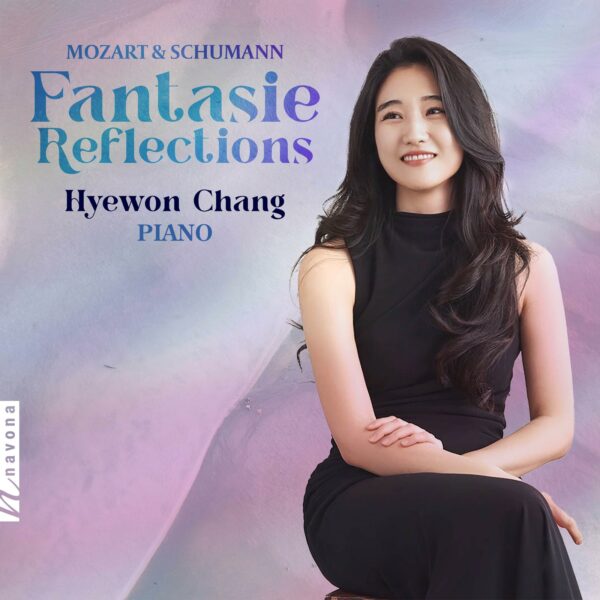Hyewon Chang beginnt ihr Programm mit einer Auswahl von Mozarts Moll-Fantasien, denen sie mit kräftiger Präsenz des Bassregisters einen dunklen Charakter verleiht. Das Spiel der Koreanerin gibt diesen Werken klare, präzise Linien und Konturen, legt kraftvoll ihre Architektur bloß, immer rhetorisch, wenn Mozarts Aussage wirkungsvoller Dramatik bedarf, beseelt und tiefgründig, wenn der Komponist uns über seine Seelenqualen informiert. Die sehr direkte und kompakte Tonaufnahme verstärkt den Eindruck des dunkel gefärbten Musizierens, der uns Mozart robuster und kräftiger zeigt als andere Pianisten und die Werke deutlich in Richtung Beethoven rückt.
Schumanns Fantasie op. 17 war als Hommage an Beethoven gedacht und sollte ursprünglich ‘Große Sonate von Florestan und Eusebius’ heißen, mit drei Sätzen deren Titel der Komponist mit ‘Ruinen’, ‘Trophäen’ und ‘Palmen’ angegeben hatte. Und vom ersten Satz sagte er, er sei « vielleicht der leidenschaftlichste, den ich je geschrieben ». Auch in diesem Werk überzeugt Chang mit einem sehr klar konturierten und kraftvollen Spiel, ohne allerdings auch nur annähernd die tiefschürfenden Interpretation von Gaspard Dehaene oder Piotr Anderszewski zu erreichen.
Mit werden demnach von dieser Produktion vor allem die Mozart-Fantasien in Erinnerung bleiben.
Hyewon Chang begins her program with a selection of Mozart’s Fantasies in the Minor Key, to which she lends a dark character with the powerful presence of the bass register. The Korean’s playing gives these works clear, precise lines and contours, powerfully revealing their architecture, always rhetorical when Mozart’s statement requires effective drama, soulful and profound when the composer informs us of the torments of his soul. The very direct and compact recording reinforces the impression of a darkly colored music-making, which shows us Mozart more robust and powerful than other pianists and clearly moves the works in the direction of Beethoven.
Schumann’s Fantasy op. 17 was intended as a tribute to Beethoven and was originally to be called the « Great Sonata of Florestan and Eusebius, » with three movements that the composer had given the titles ‘Ruins’, ‘Trophies’, and ‘Palms’. And he said of the first movement that it was « perhaps the most passionate I have ever written. In this work, too, Chang convinces with a very clearly contoured and powerful performance, but without coming close to the profound interpretations of Gaspard Dehaene or Piotr Anderszewski.
It is the Mozart Fantasies from this production that will remain in my memory.


















